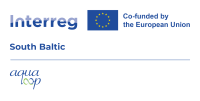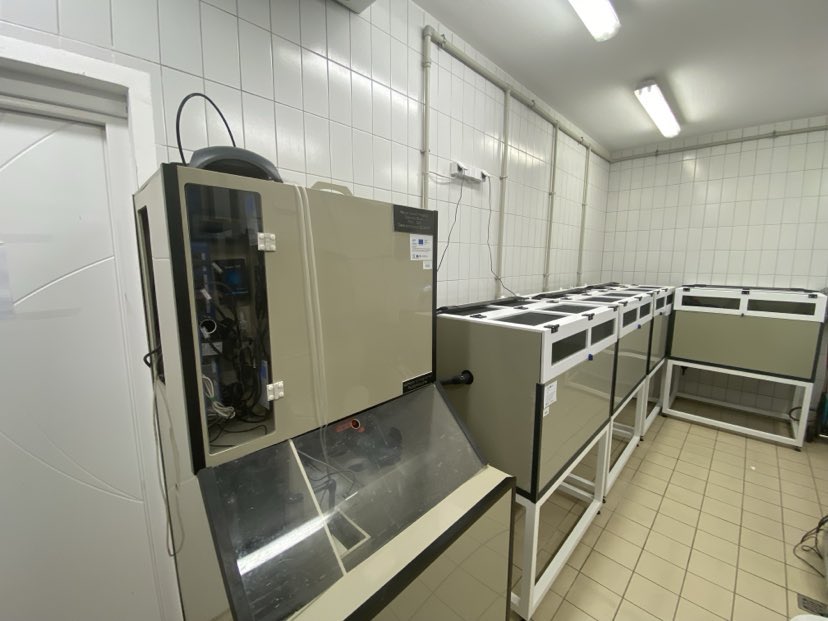Noticing a problem of pollution of waters due to animal metabolism and feed, AquaLoop partner – University of Gdańsk (PL) decided to conduct a pilot on shrimp recirculating aquaculture systems (RAS) improvements, especially in the field of algae applications: TARAS – Testing Algae Applications in Recirculating aquaculture systems (RAS) to improve aquaculture circularity potential in the SB region.
Already results of previous projects (Interreg South Baltic InnoAquaTech and Interreg South Baltic AquaVIP) showed us shrimp and Baltic algae aquaculture potential, including Litopenaeus vannamei RAS culturing, RAS waters purification by macroalgae and positive effects on animal welfare, and microalgae screening for growth in RAS waters and adaptation.
With the new pilot development the aim is to further develop technology on cultivation of shrimps and specific strains of microalgae, for RAS facilities, effluent purification, while producing high-value algal biomass, and to demonstrate applications of the biomass produced.
So far, three pilot modules have been designed: (1) RAS shrimp aquaculture including facility improvements, shrimps diet, supplements improving growth performance and resistance to pathogens, breeding cycles parameters, post-larvae delivery, indicators to be studied, including: body weight gain, scope for growth (SFG), net growth efficiency (K2), infections (bacterial, viral, fungal) and abnormalities in digestive, circulatory and respiratory systems; (2) microalgae production and application, including waste water treatment and application for microalgae production, determination of water chemical composition chemical (nutrient content), photobioreactor panels design, two phased approach design, where cells from the culture medium will be transferred to the effluent – cells will be harvested by centrifugation and then resuspended in the RAS water, and subsequently, biomass will be collected and subjected to biochemical analysis; (3) macroalgae RAS water purification testing and demonstration, including green algae of the genus Ulva to remove excess nutrients and provide biomass for further testing and harvesting (the module will be further developed in the later part of the project).
The foreseen benefits of combining shrimp RAS and algae include reduction of costly water treatment, expanding the range of food and products from aquaculture, additional value chain related to microalgae, and final development of circular economy.
Stay tuned for updates on our pilot!
AquaLoop pilot 1: TARAS presentation
Coordinating partner: University of Gdańsk (PL)
Video material from InnoAquaTech and AquaVIP projects experimental work at the University of Gdańsk:
Experimental RAS shrimps cultivation (Litopenaeus vannamei)
Feasibility of co-culture of shrimp and algae in RAS system
Laboratory scale RAS facility at the University of Gdańsk
Contact: monika.normant@ug.edu.pl, filip.pniewski@ug.edu.pl, marek.klin@ug.edu.pl, aleksandra.zgrundo@ug.edu.pl

